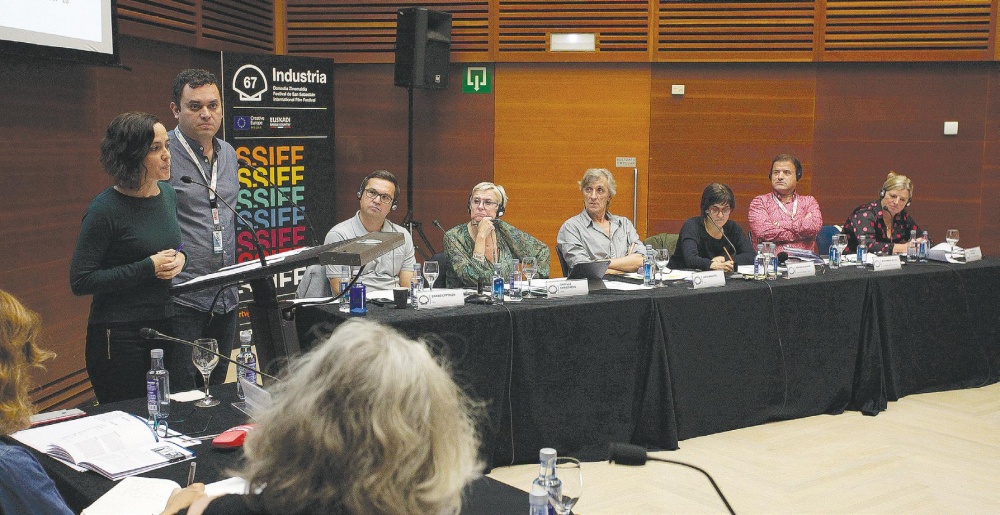Samuel and the Light snagged the main prize for best project at San Sebastian’s 26th Lau Haizetara‘s Documentary Co-production Forum scooping a €3,000 ($3,284) cash prize.
A co-production between Brazil’s Sendero Filmes and France’s Le-loKal follows an initially five-year-old kid over five years in Brazilian fishing village Ponta Negra depicting his growth and awareness of the complex reality of his native country, and its contradictions –modernity and tradition, luxury and waste, nature and technology.
The Treeline Award –a Consultancy Award regarding distribution and festivals– went to Martina Matzkin and Gabriela Uassouf’s The Caretaker, an emotional but analytical insight in two seemingly incompatible and historically marginalized worlds –transsexual women and senior adults –the first taking care of the second. Argentina’s Groncho Estudio produces.
Projects sparking large interest took in Robin Bank from Spain and Argentina’s Ocho cuentos sobre la hipoacusia.
Directed by Anna Giralt and produced by Barcelona and Bogotá-based Gusano Films, Robin Bank tells the story of a peculiarly modern Robin Hood, a Catalan activist, Enric Duran, who between 2005 and 2008 took out loans of €500,000 ($550,000) which he never repaid. Instead, he used the money to fund social projects. Now he is a declared fugitive from law. The story will be built through animation, creative documentary, humor and a vibrant rhythm, its maker say.
“This film is intrinsically linked to my personal experience as a hearing impaired person immersed in a family with several hearing impaired people,” Argentine director Charo Mato explained about Ocho cuentos sobre la hipoacusia.
“With this film I seek to question misguided judgments on people who are deaf, and hard of hearing and hearing.” the film is narrated in deep, intimate poetic tones. The project is a production of Eugenia Olascuaga at Uruguay’s Monarca Films.
Organized by Basque producers’ lobby Ibaia, Lau Haizetara is consolidating its profile as an international meeting and an opportunity to strengthen the Basque sector.
Among the 14 projects pitched this year at Lau Haizetara edition, Basque companies - Irusoin, Área Audiovisual, Banatu Filmak, Sonora Estudios, Media Attack and Dynamite Films - are involved n six, two in co-production with neighboring French companies.
Other buzzy projects were Miguel Ángel Blanca’s Magaluf Ghost Town, about the so-called “Balearic Twin Peaks,” exploring a particularly invasive tourist model with humorous overtones and lying somewhere between fiction and documentary; Iban Ayesta Aldanondo’s Amores Transhumantes, about a millenary way of life at risk of disappearance in Navarra, transhumant shepherding; and Santi Palacios and Simón Casal’s The Gourougou Trial, taking a well-known case as a premise to tackle the on-going debate on migration and its management in Europe.
Regarding trends this year, co-ordinator Silvia Hornos told Variety: “We have noticed in line with past editions that producers and directors are ever more committed when it comes to social and political issues, there’s a larger presence of women directors and an increase in the forum’s international reach in terms of participating countries and co-productions.”
Emilio Mayorga





